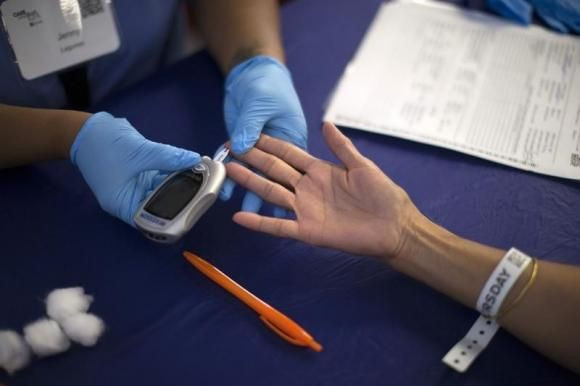Yale U Scientists Experiment With Watered-Down Version Of DNP To Reverse Type 2 Diabetes

Scientists at Yale University are experimenting with a watered-down version of the chemical mitochondrial protonophore 2, 4-dinitrophenol (DNP) to reverse Type 2 diabetes. The result of their trial on mice, published in the Science journal On Feb 26, found that low-dose infusion of DNP that was a hundred times lower than toxic levels reduce blood glucose significantly and insulin concentrations in a model of a rodent with Type 2 diabetes.
With the promising results, not only on Type 2 diabetes but also on fatty liver ailment, the researchers are pursuing more preclinical safety studies, reports the Telegraph.
The Yale team was led by Dr Gerald Shulman, the George R. Cowgill Professor of Physiological Chemistry and professor of medicine and cellular and molecular physiology at Yale School of Medicine.
It was scientists at Stanford University who first noticed that DNP increased metabolism by up to 50 percent, in the process burning large amounts of fat and carbohydrate. In one year of that discovery, 20 drugs with DNP were on the market, but in the 1930s, the pills with DNP were declared not safe after one male patient who overdosed was literally cooked to his death.
DNP was initially used in arms factories in France at the start of the 20th century. It was mixed with piric acid to manufacture explosives. It was observed that the factory workers sweat excessively, lose weight and had high temperatures.
The Russian Army too used DNP to keep the troops warm during winter, but soldiers noticed excessive weight loss. It is also used by bodybuilders and people with eating disorders to lose weight and speed up metabolism.
Because DNP is sold mainly as a pesticide, despite warning against consuming DNP by the Food Standards Agency due to its side effects such as nausea, vomiting, restlessness, flushed skin, sweating, dizziness, headaches, rapid respiration and irregular heartbeats, the agency couldn’t ban its sale because it is not sold as medicine.
Diabetes UK Communications Manager Richard Elliot stressed that despite the promising results of the study, it involved only rates, and more studies are need to find if DNP is safe for human use. He advised people with Type 2 diabetes to follow their doctor’s prescription and maintain a healthy weight as well as eat a balanced diet.
To contact the writer, email: v.hernandez@ibtimes.com.au





















